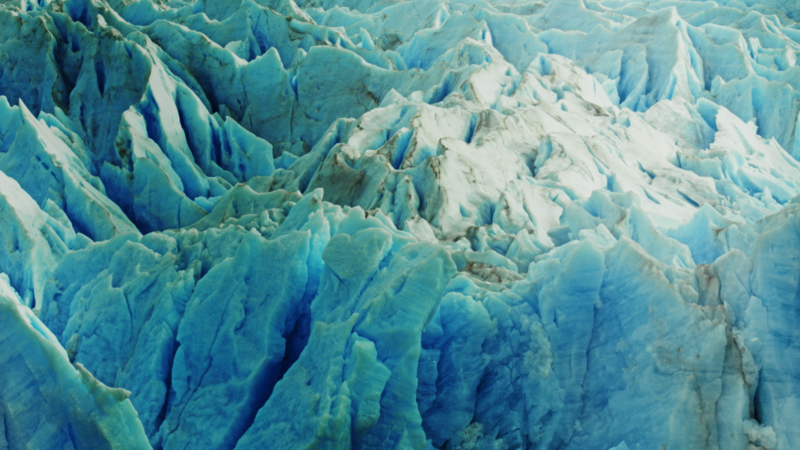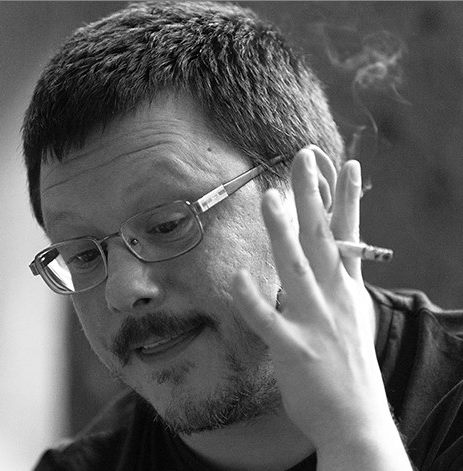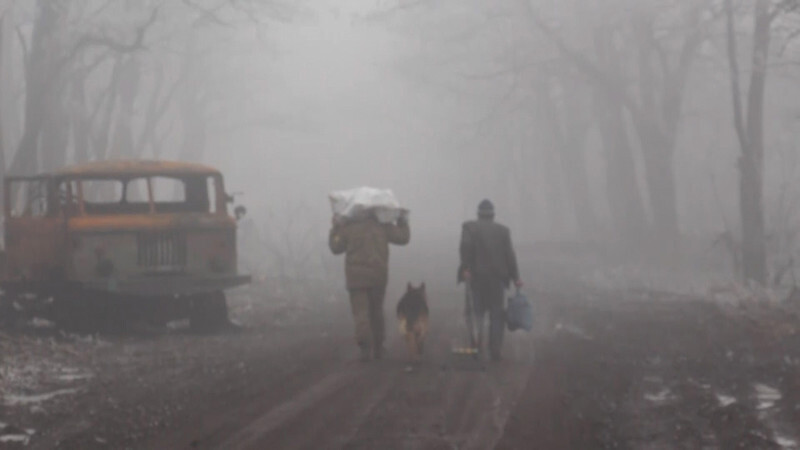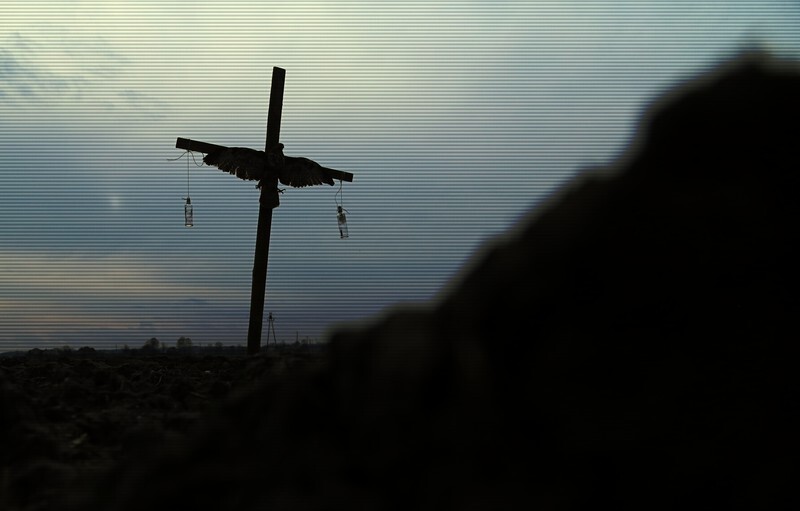Wind Shaped Rocks
When you see the title Wind Shaped Rocks in the context of a documentary festival, you initially think of a majestic poetic collection of nature scenes, with sweeping music and an aspect ratio of no less than 16:9. Then if you check the running time (44 minutes) and the particular section of a particular festival (Jihlava's Opus Bonum), your mind might turn to the more experimental, literally naturalistic modern classics such as Lucien Castaing-Taylor and Verena Paravel's Leviathan, or Manakamana by Stephanie Spray and Pacho Velez.
And Mexican filmmaker Eduardo Makoszay's third film does open with a scene that is reminiscent of the latter. A group of Taiwanese tourists, shot with a narrow lens from a fixed position, take a ferry to an unspecified glacier But it turns into something much more experimental and harder to define. Wind Shaped Rocks combines a travelogue with an intimate diary of the filmmaker, which in turn branches into a psychedelic, dream-like reflection and a comment on filmmaking itself, however opaque. And then there is a narrative aspect, with possible roots in mythology (of also unspecified origin) and science fiction, that holds the succession of disparate images together as one, however loose, story.
In a true experimental spirit, Makoszay manipulates images and sounds to the point of unrecognition. It is difficult to technically pinpoint what exactly is done to which image. In the current technological era, it is sometimes hard to tell if a scene was shot with a low-fi camera and processed in a high-tech studio, or filmed with high-end equipment and then intentionally corrupted through simple PC software. However, throughout Wind Shaped Rocks, the director's approach negates the urge to differentiate as it gradually discards with the significance of context. If the early scenes in a hotel room and on the street are intuitively associated with smartphone footage and the later widescreen shots of sea, sky and glaciers recall a viewer's experiences of nature documentaries, what are we to make of VHS-style blurs and highly over-saturated colours of electronic fuzz in between?
As for recognizable images, they succeed each other without an obvious direct connection beyond shape, colour or relative purpose. Is a yellow hose more like black rubber boots or a blue plastic ball? I suppose it depends on your own mind and what kind of correlation it is trained to follow. This is a marking of some of the greatest experimental filmmakers, but also of young children.
The sounds are even less formalized than the visuals. Buzzing, crackling, and beeping come in and out, sometimes unrelated to the image. At times there is no sound at all. The wind from the title does reach the rocks, but we first hear it as a hum on the unprotected microphones. It is like footage without sound correction. It is, again, hard to tell what is intentional and what is the consequence of lo-fi equipment, but experience tells us that even the best microphone will produce a distorted sound when exposed to the wind. However, Makoszay uses effects such as reverb to such an extent that this differentiation also loses significance as the film progresses.
He tells us his film should rather be experienced than comprehended. But he tells us so gradually, that we learn as we watch. The final impact is cumulative, adding up to an impression which, as with most experimental films, depends on the viewer.
|
|
Vladan PetkovicVladan Petkovic is a journalist, film critic, festival programmer, translator and educator. He is the correspondent for the territories of former Yugoslavia for Screen International and Cineuropa, and regularly writes news, reviews, interviews, and market analyses for various magazines and websites. He is a programmer for the Cinema City Film Festival in Novi Sad (Serbia), Skopje Film Festival (Macedonia), and Mostar Film Festival (Bosnia and Herzegovina), and contributes as guest programmer and advisor for numerous international film festivals around Europe. |




